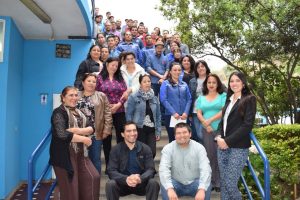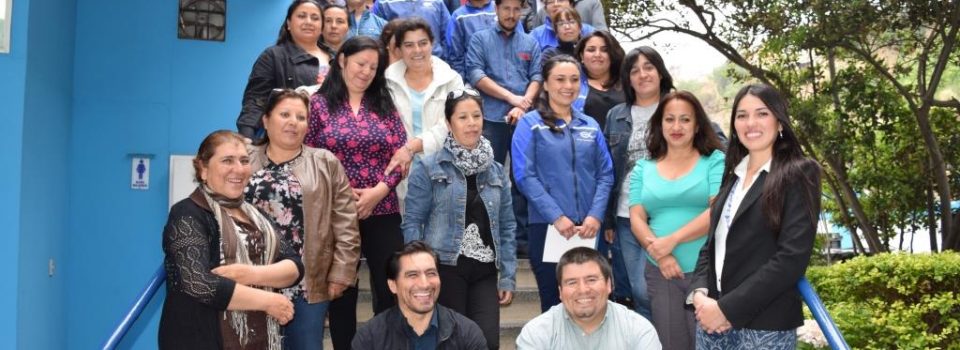IFOP and PUCV train 167 Scientific Observers throughout Chile
December 5th, 2016
Observers in training
Within the framework for accreditation of knowledge and competences included in the Regulation of Scientific Observers, which consider the areas of Arts and Fishing Tackles, Species Identification, Sampling Techniques and Fishing Regulations, during the month of November, the Pontificia Universidad Católica de Valparaíso (PUCV) and the Instituto de Fomento Pesquero (IFOP)) have carried out various training programs throughout Chile.
Erick Gaete, Head of sampling management section of IFOP, referred to scientific observers as “the persons responsible for the observation and compilation of biological and fisheries data throughout the country, whether shipped on board artisanal or industrial vessels in commercial fishing operations, at points or ports of unlanding or discharging, or also in processing plants. ” He emphasized that all information recorded by them can only be used exclusively for scientific research, conservation and/ or fisheries management of the country’s hydro biological resources.
The development of these massive courses marks a very important event in the national fisheries administration and management, said Luis Cocas, a professional of Fisheries Administration Division of Subsecretaría de Pesca y Acuicultura, adding that these represent a major step towards the sustainability of the activity.
“The importance of scientific observation programs has been recognized all over the world because the information they collect is a crucial contribution for management making decisions. In this way, and recognizing the role they play, Chilean regulations have incorporated changes and demands that seek to professionalize the work of observers and ensure that their work is carried out in a safe environment, free of interference and with modern tools, so that the quality and representativeness of the information collected is indisputable,” concluded Cocas.
Of the four courses taught, one is conducted as an internal training -Arts and Fishing Tackles-while the others – Techniques and Methodologies of Fishery Biological Sampling, Marine Species Identification, and Fishing Regulations- are being dictated by the Pontificia Universidad Católica de Valparaiso under the coordination of Dr. Dante Queirolo, academic of the Escuela de Ciencias del Mar.
It is important for the researcher that observers could be aware of appropriate methods and not only be based on experience. “It is important that they pass through a leveling and standardization of data collection, for this reason the PUCV met the needs of IFOP and designed the programs according to the contents requested, combining theoretical and practical aspects.”
He indicated that some of the complexities of these trainings are that the observer comprehends in an integrated way the new challenges of the investigation for the fisheries administration, emphasizing for example the difficulty in the identification of species given the great existing diversity, considering fish, birds, mammals and reptiles, being very complex also to gather specialists. In this sense, he points out that “what we want to achieve is not a specialist in identifying all species, but a scientific observer who has the capacity to face a situation and have the necessary tools to do the assignment.”
At the end of each course, participants who have completed 80% of required minimum attendance and pass the corresponding assessments, will receive a certificate of training from the Pontificia Universidad Católica de Valparaiso. This will allow accrediting knowledge in order to enter the list of scientific observers issued by Subsecretaría de Pesca y Acuicultura.
